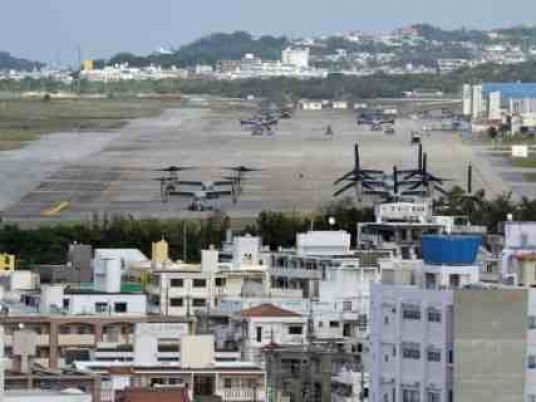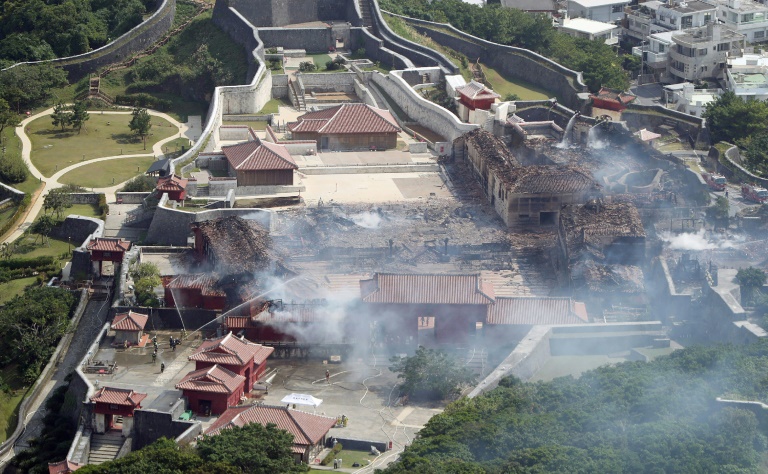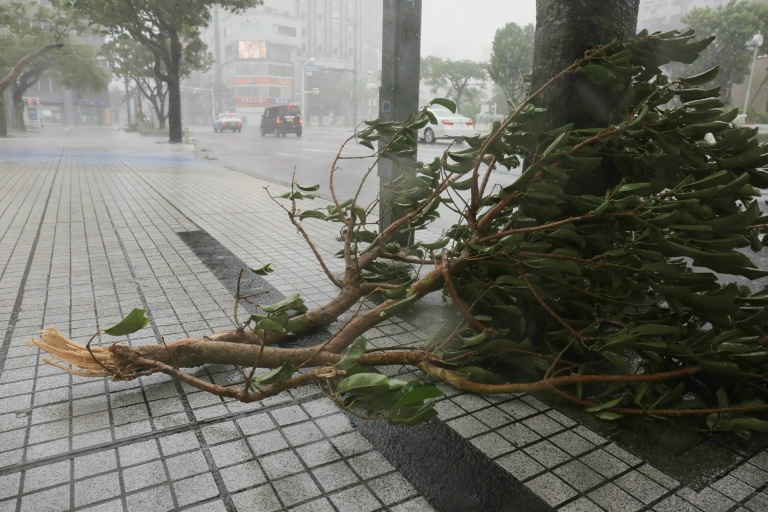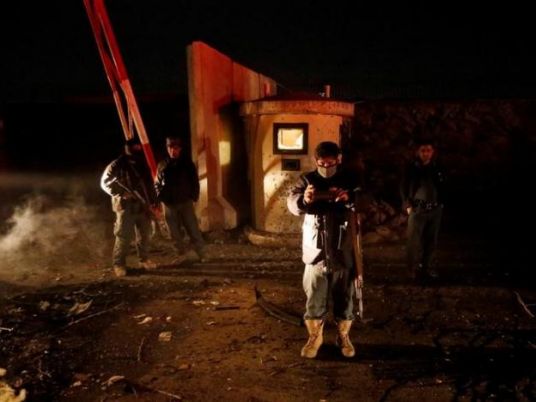
Japan on Tuesday sued its southern region of Okinawa over local resistance to a new US military base, the latest chapter in deepening mistrust between central authorities and the government of the strategic island.
The lawsuit comes amid a long-running drama between Tokyo, keen to satisfy security ally the United States, and Okinawa, where frustration over a seven-decade American military presence is rife.
Pacifist sentiments run high on the island that accounts for less than one percent of Japan's total land area but hosts about 75 percent of US military facilities in the country.
Takeshi Onaga, Okinawa's governor, has said he would "do his best" to prevent the central government from building a new US Marine base in a remote part of the island to replace the existing Futenma facility in a heavily populated area.
In October, he cancelled a 2013 approval for the project by his predecessor, saying it was not legally sound, prompting Tokyo to seek court action.
The central government's suit, filed in the Okinawan capital of Naha, is asking the court to void Onaga's cancellation order of a landfill permit needed to construct the facility.
"The legal action was necessary in order to remove danger associated with the Futenma air base," Chief Cabinet Secretary Yoshihide Suga, told reporters.
Suga was referring to the existing marine base located in the central Okinawan city of Ginowan and widely seen as a danger to residents.
He also said the initial approval was legal and formed a precedent that allows landfill work to continue, citing "administrative continuity".
The Okinawan prefectural government had no immediate comment but said Onaga was likely to issue a statement later.
Work in the Henoko district of Nago city in the island's north is only in the initial stages, with crews setting up sea floats and a makeshift bridge necessary for the landfill work.
Japan and the US first proposed moving Futenma in 1996, though insisted it must remain in Okinawa — a key area from which US troops and aircraft can react to potential conflicts throughout Asia.
But local residents have insisted that Futenma should be closed and a replacement built elsewhere in another part of Japan or overseas, saying they can no longer live with the noise pollution, accidents and occasional crimes committed by US service members.
American and Japanese troops fought a bloody battle on Okinawa in 1945, with the US subsequently occupying the island for 27 years before handing it back to Japan.
The US has maintained a heavy, though gradually reduced, presence, ever since and Okinawa remains home to more than half of the 47,000 American military personnel stationed in Japan.
Residents and officials say they bear too much of the national burden of supporting Japan's security alliance with Washington and are demanding relief.
While the region's plight draws sympathy from much of the rest of Japan, Okinawans' calls for an increase in sharing the burden have largely fallen on deaf ears.




